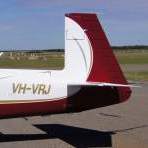STEC 55x pitch and roll issues
-
Members Online
- Adam_StPete
- mlafayette
- Deb
- C.J.
- CalebH
- TCC
- natdm
- Fly Boomer
- EarthboundMisfit
- sdmideas
- gabez
- PT20J
- LANCECASPER
- ajudson
- Blaze
- donkaye
- eman1200
- ta2too
- Doug G
- raymondscott0321
- 1980Mooney
- Jason B.
- dkkim73
- 802flyer
- Mooneydreamr
- DEGWS
- TravelingIA98
- prillayo03
- chrisburdzy98
- EricJ
- Todd1
- Samir13k
- rklems
- Flyler
- dzeleski
- N201MKTurbo
- Marc_B


Recommended Posts
Join the conversation
You can post now and register later. If you have an account, sign in now to post with your account.